Are you navigating the tricky waters of a settlement negotiation? Whether you're dealing with a personal dispute, a business conflict, or a legal issue, crafting the perfect proposal letter can make all the difference. This letter serves not only as a point of communication but also as a foundation for reaching a mutually beneficial agreement. Ready to dive deeper into the art of negotiation? Let's explore more!
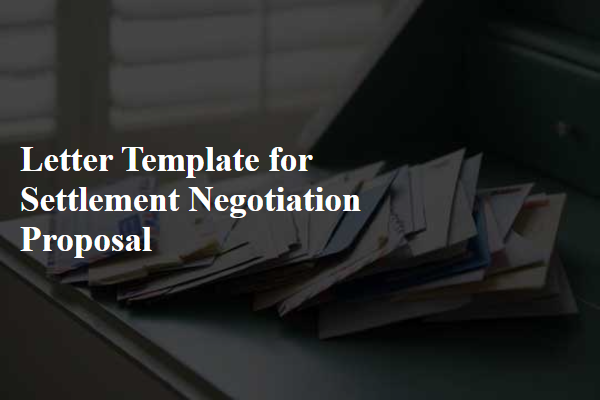
Introduction and Purpose
A settlement negotiation proposal serves as a formal request to discuss the resolution of a dispute outside of court proceedings. This document outlines the key issues at stake, the parties involved, and the desired outcomes aimed at achieving a mutually beneficial agreement. Typically, such proposals are utilized in various contexts, including legal disputes, business disagreements, or labor negotiations, and function as a foundation for constructive dialogue. The objective is to foster collaboration, reduce litigation costs, and expedite the resolution process while maintaining professional relationships between the parties. Engaging in this process allows for clear communication and the exploration of creative solutions tailored to the specific context of the disagreement.
Background and Context
A settlement negotiation proposal typically arises from a legal dispute, often involving parties trying to resolve conflicts outside of court. In scenarios such as civil lawsuits, contract disputes, or personal injury claims, background information can provide essential context. For example, in a personal injury case stemming from a car accident in New York City on April 15, 2022, the claimant may have sustained serious injuries, resulting in medical expenses exceeding $50,000 and lost wages of approximately $15,000. The defendant, an insurance company based in Manhattan, might aim to settle to avoid the uncertainties associated with trial. Understanding the specific facts, including timelines, involved parties, and financial implications, is crucial in formulating a compelling negotiation proposal.
Proposed Terms of Settlement
A settlement negotiation proposal requires clarity and specificity, outlining key terms that must be agreed upon to resolve disputes amicably. The proposed terms of settlement often include compensation amounts, such as monetary figures that reflect damages or losses, deadlines for payment, and confidentiality clauses to protect sensitive information. Additionally, it may specify the responsibilities of each party, such as compliance with contractual obligations or future conduct guidelines, which can mitigate further disputes. Venue-related terms are crucial, especially if a meeting is needed for final agreements, often referencing a location like a local courthouse or mediation center. Including waiver clauses is also essential, allowing for the dismissal of any further claims related to the specific issue at hand, ensuring a clean resolution moving forward.
Justification and Rationale
In the context of settlement negotiation proposals, clear justification and rationale are essential to convey the legitimacy of the request. Detailed analysis of previous case precedents reveals that settlements often serve the interests of both parties by reducing litigation costs, which can escalate to thousands of dollars in attorney fees and court expenses. Current market trends, particularly in commercial disputes in metropolitan areas like New York City, illustrate that settlements yield faster resolutions--typically within a few months, compared to court timelines that may extend for years. Evidence suggests that approximately 70% of similar disputes reach settlements outside of court, highlighting the effectiveness of this approach. Additionally, maintaining a professional relationship post-negotiation can be crucial for future business transactions, particularly in sustained partnerships. Emphasizing these points can enhance the appeal of the proposed settlement terms, illustrating a mutually beneficial outcome that favors both parties and promotes harmony.
Call to Action and Next Steps
A settlement negotiation proposal should clearly outline the call to action and the next steps to facilitate resolution. Stakeholders should review proposal documents thoroughly, identifying key points and areas for agreement. A proposed meeting date of November 10, 2023, at the downtown mediation center in New York City could be established to discuss terms directly. Interested parties should confirm their availability for this date and prepare necessary documentation, including financial statements and liability assessments, to ensure a productive conversation. Providing feedback within five business days (by November 3, 2023) would help maintain momentum in negotiations. Consistent communication via email or phone is crucial for addressing any emerging concerns or clarifications to the proposal.

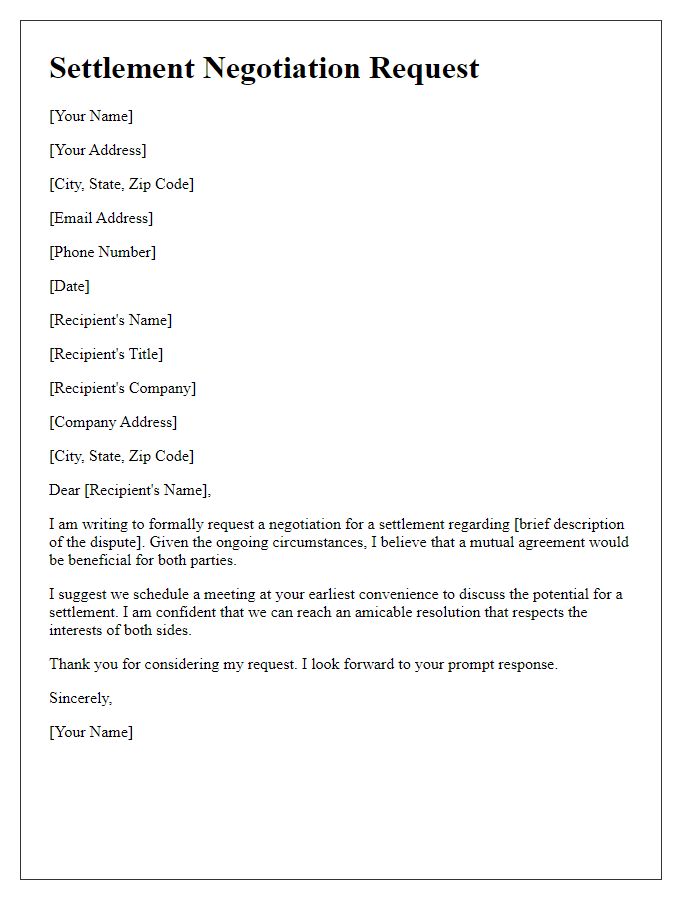
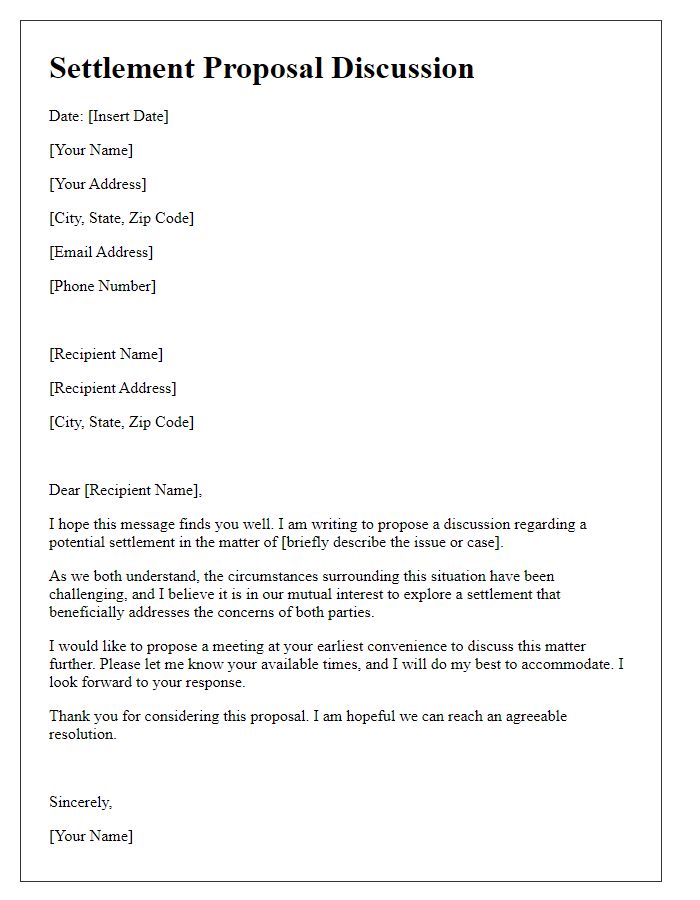
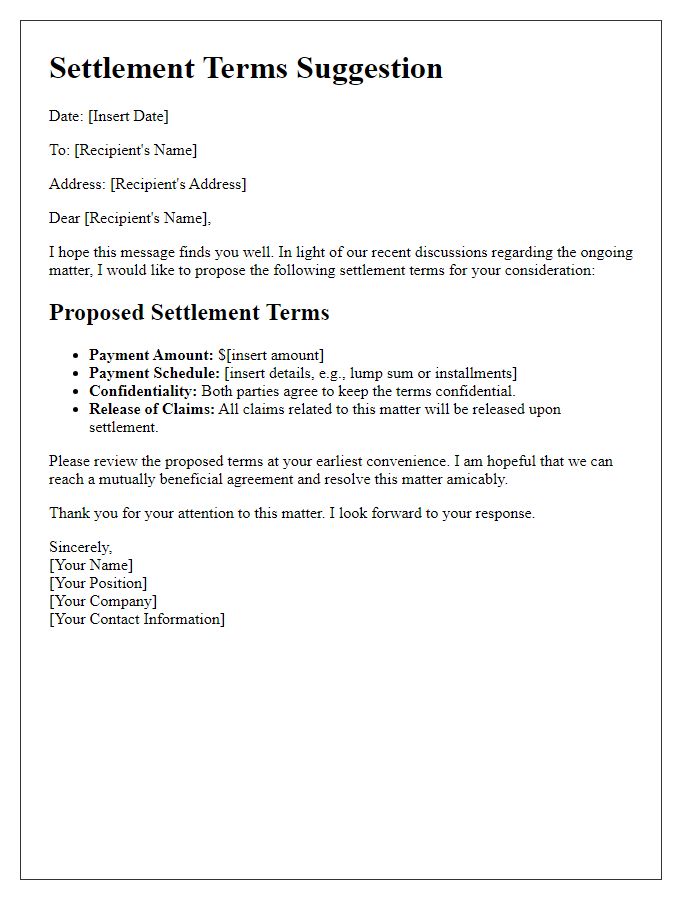
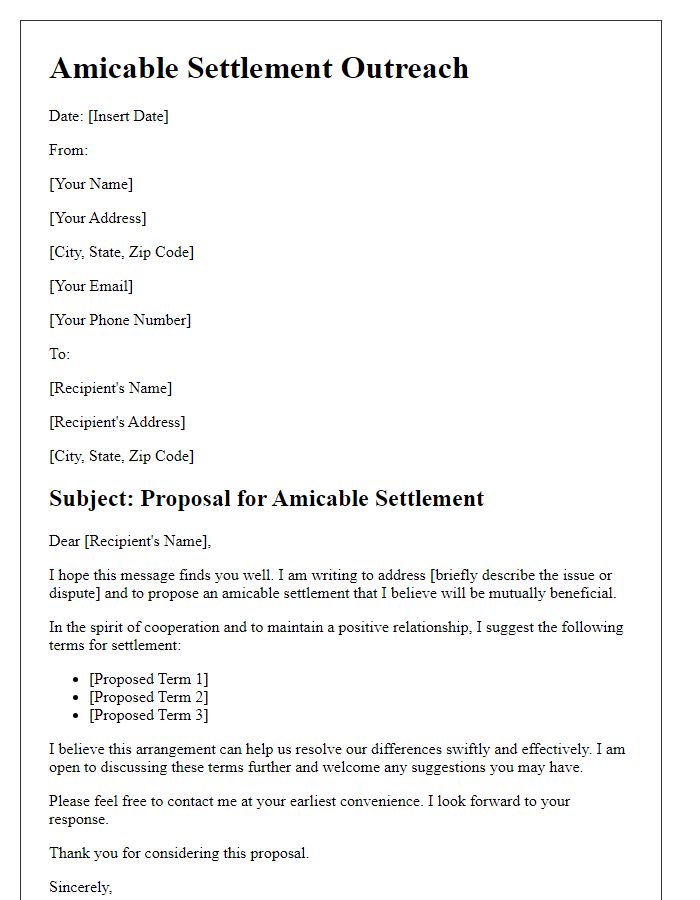
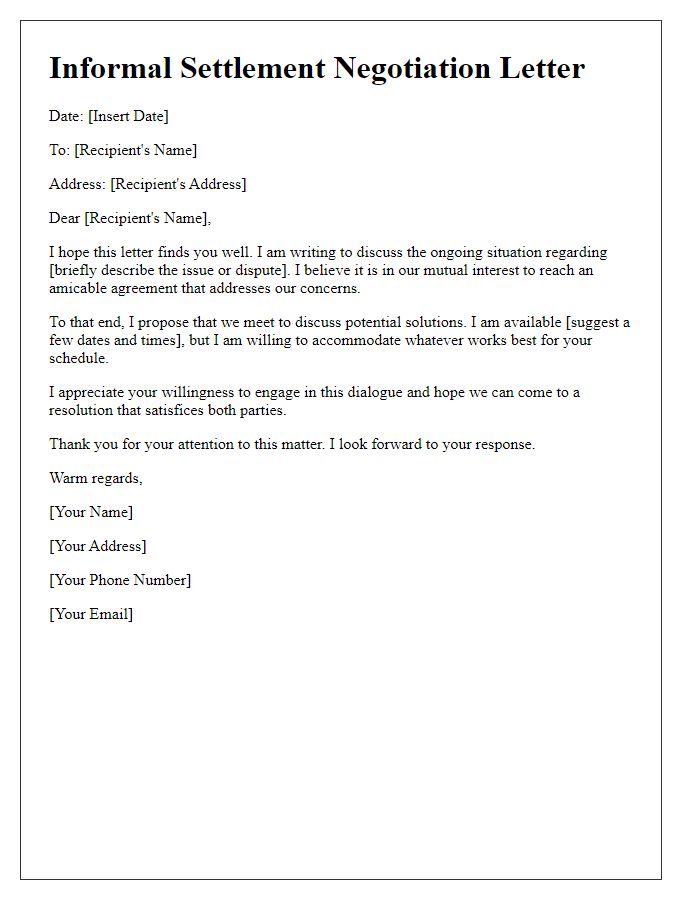
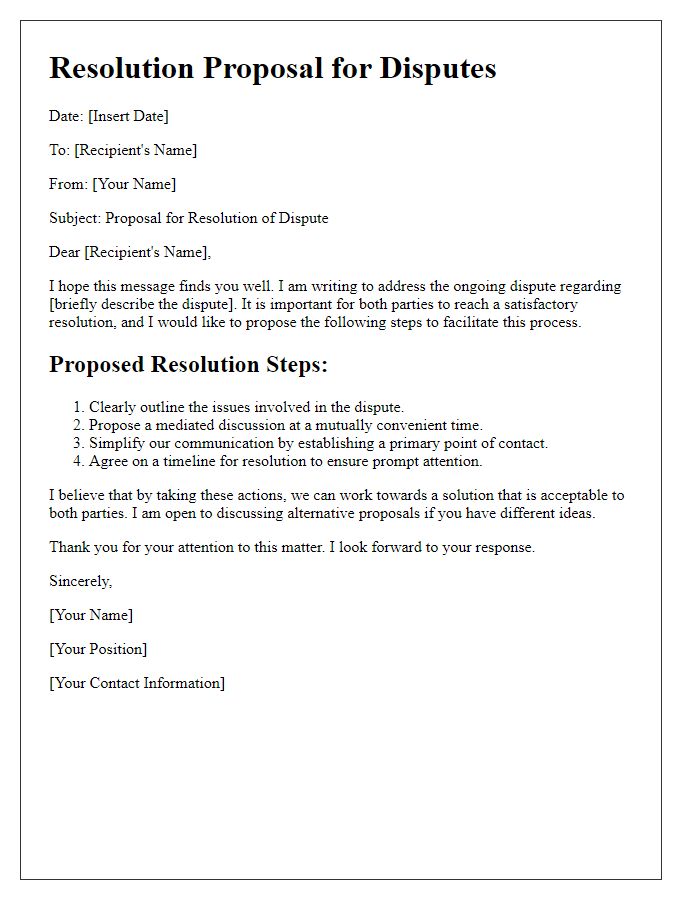
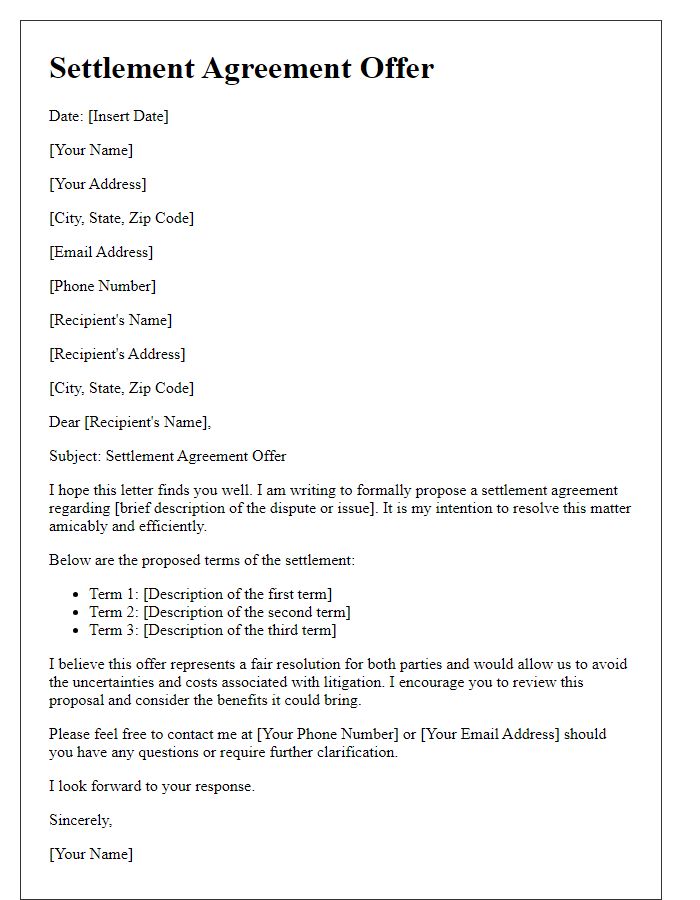
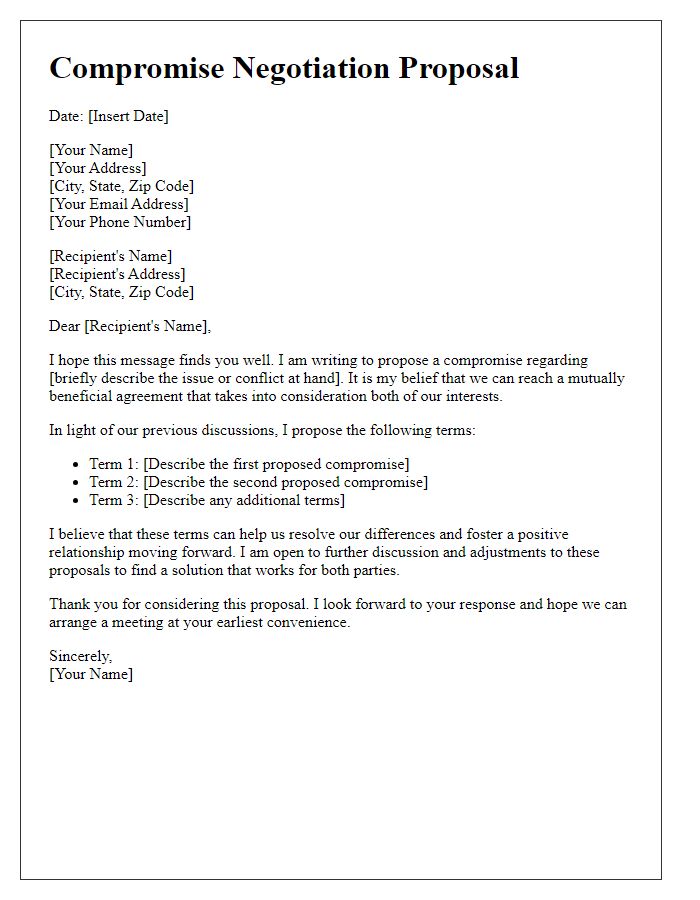
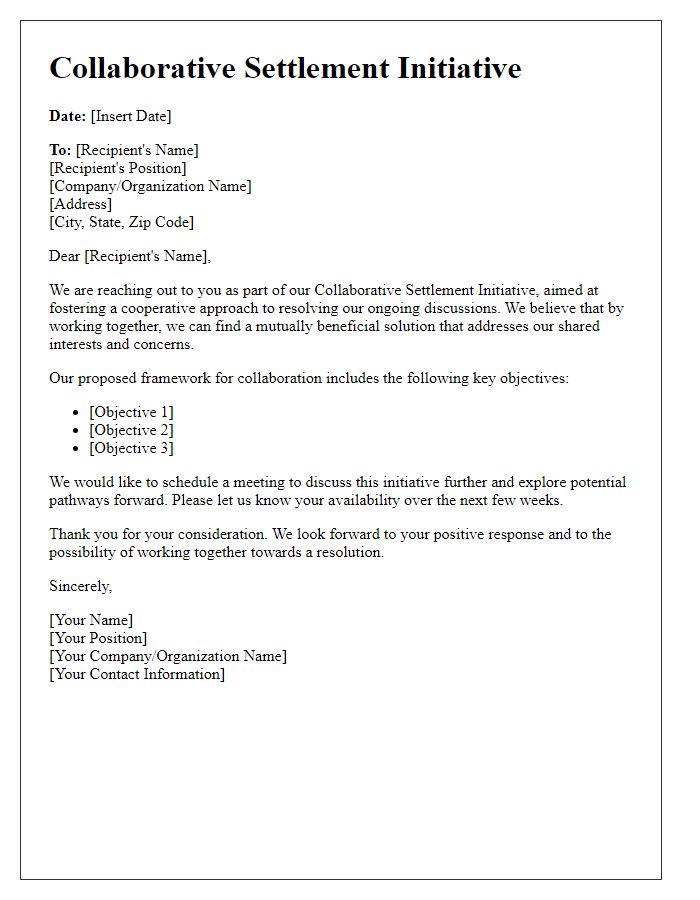
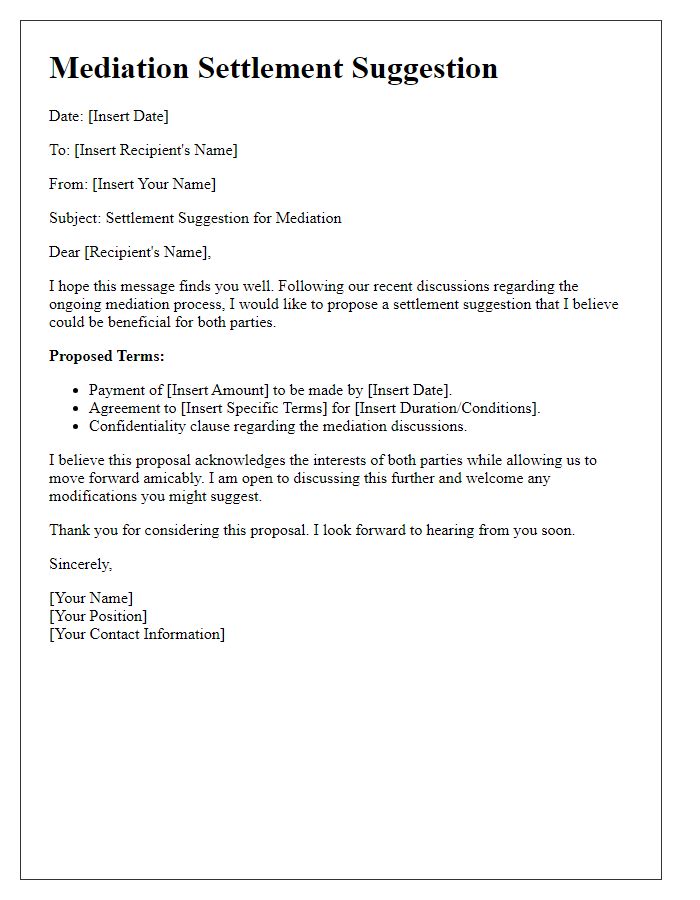

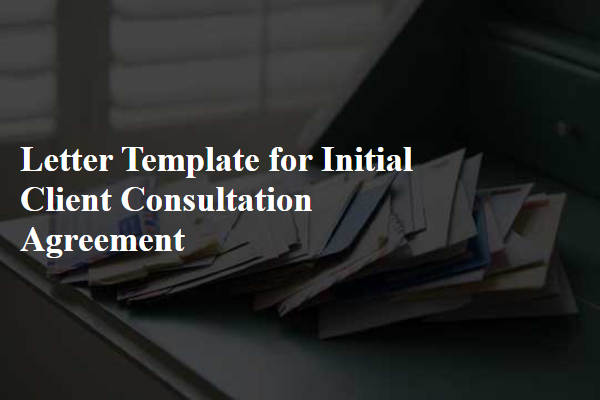
Comments